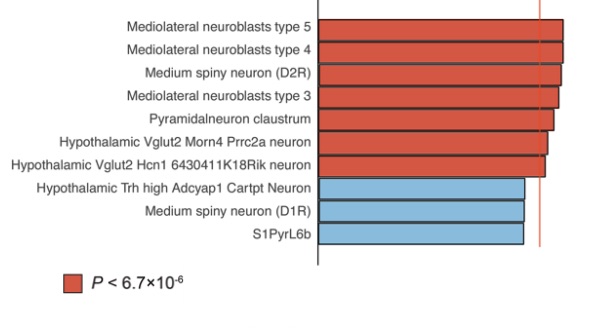 My caption 😄
My caption 😄
Genome-Wide Meta-Analysis of Insomnia Complaints (N=1,331,010) Identifies Novel Genetic Loci and Functional Pathways
Abstract
Insomnia is the second-most prevalent mental disorder, with no sufficient treatment available. Despite a substantial role of genetic factors, only a handful of genes have been implicated and insight into the associated neurobiological pathways remains limited. Here, we use an unprecedented large genetic association sample (N=1,331,010) to allow detection of a substantial number of genetic variants and gain insight into biological functions, cell types and tissues involved in insomnia. We identify 202 genome-wide significant loci implicating 956 genes through positional, eQTL and chromatin interaction mapping. We show involvement of the axonal part of neurons, of specific cortical and subcortical tissues, and of two specific cell-types in insomnia: striatal medium spiny neurons and hypothalamic neurons. These cell-types have been implicated previously in the regulation of reward processing, sleep and arousal in animal studies, but have never been genetically linked to insomnia in humans. We found weak genetic correlations with other sleep-related traits, but strong genetic correlations with psychiatric and metabolic traits. Mendelian randomization identified causal effects of insomnia on specific psychiatric and metabolic traits. Our findings reveal key brain areas and cells implicated in the neurobiology of insomnia and its related disorders, and provide novel targets for treatment.
More detail can easily be written here using Markdown and math code.